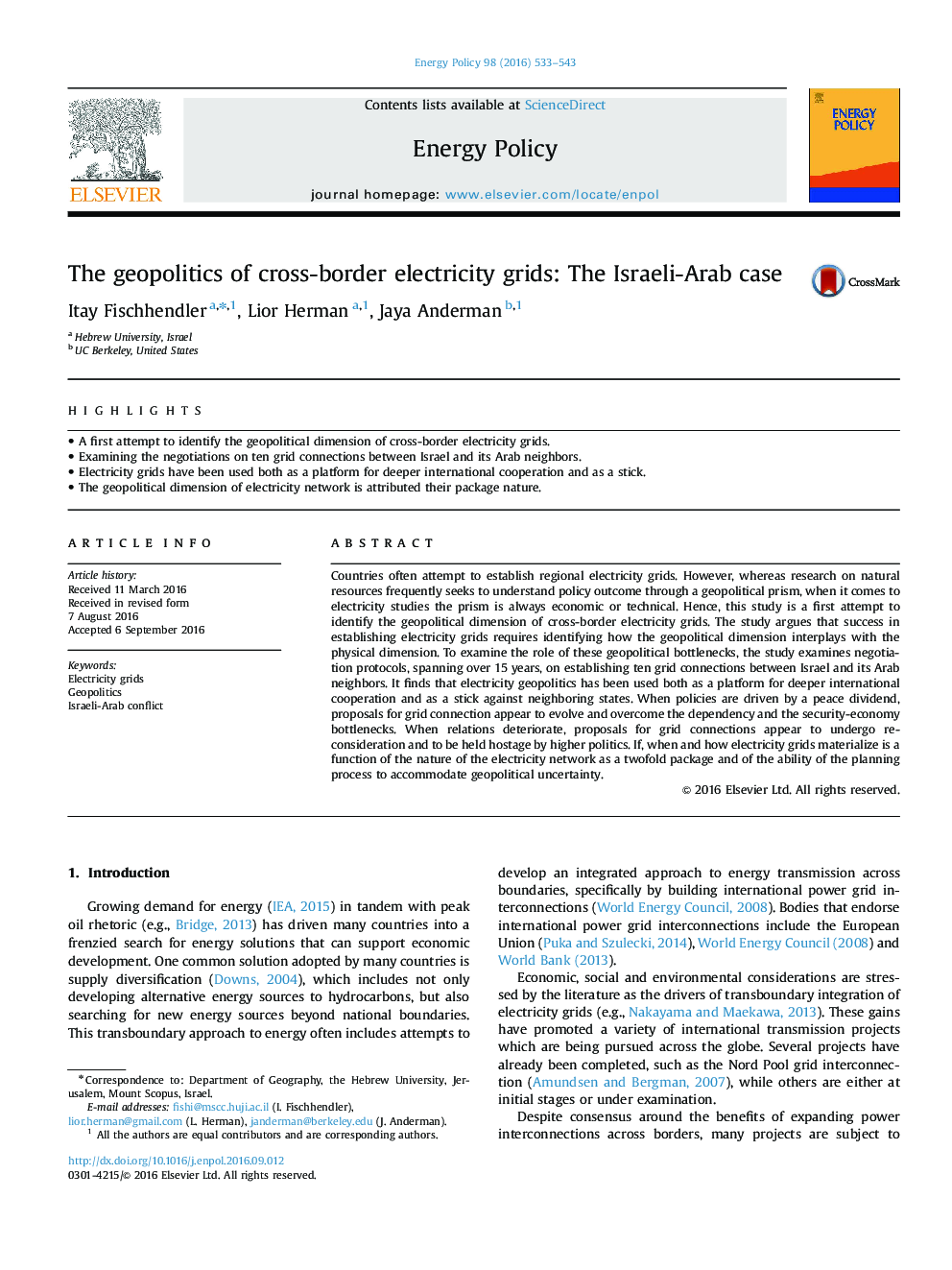| Article ID | Journal | Published Year | Pages | File Type |
|---|---|---|---|---|
| 7398420 | Energy Policy | 2016 | 11 Pages |
Abstract
Countries often attempt to establish regional electricity grids. However, whereas research on natural resources frequently seeks to understand policy outcome through a geopolitical prism, when it comes to electricity studies the prism is always economic or technical. Hence, this study is a first attempt to identify the geopolitical dimension of cross-border electricity grids. The study argues that success in establishing electricity grids requires identifying how the geopolitical dimension interplays with the physical dimension. To examine the role of these geopolitical bottlenecks, the study examines negotiation protocols, spanning over 15 years, on establishing ten grid connections between Israel and its Arab neighbors. It finds that electricity geopolitics has been used both as a platform for deeper international cooperation and as a stick against neighboring states. When policies are driven by a peace dividend, proposals for grid connection appear to evolve and overcome the dependency and the security-economy bottlenecks. When relations deteriorate, proposals for grid connections appear to undergo reconsideration and to be held hostage by higher politics. If, when and how electricity grids materialize is a function of the nature of the electricity network as a twofold package and of the ability of the planning process to accommodate geopolitical uncertainty.
Keywords
Related Topics
Physical Sciences and Engineering
Energy
Energy Engineering and Power Technology
Authors
Itay Fischhendler, Lior Herman, Jaya Anderman,
